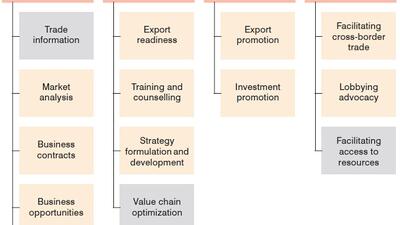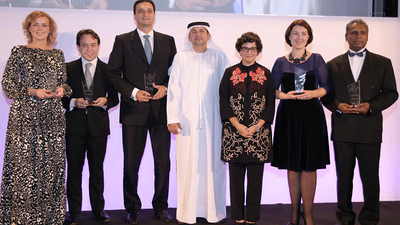Doing good and doing it well
Doing good and doing it well
Patricia Francis was the Executive Director of the International Trade Centre (ITC) in 2006-2013. It was a period that witnessed a surge in the agency’s trade-related technical assistance: its budget and staff increased, and its impact on the ground improved.
After working in trade and investment at the international level for many years, Francis joined ITC because, she says, of its importance as an organization for the developing world: ‘[At ITC], I could use my knowledge and experience of the reality faced by developing countries to add value to the organization.’ According to Francis, ITC’s uniqueness goes beyond its mandate, which is to empower the private sector to take part in local, regional and international trade. ‘Its small size allows it to be agile and respond to market demand in real time,’ she says. ‘This is what ITC did following the WTO’s 9th Ministerial Conference in Bali, Indonesia, in December 2013. Almost immediately following the agreement on trade facilitation, ITC published a guide for small and medium-sized enterprises [SMEs] on what the deal means for their business.’
‘The entrepreneurial response to its mandate is one reason ITC is a special organization,’ she says.
Francis also points out that ITC has developed a number of programmes designed to find solutions to the needs of its beneficiary countries, aimed at boosting gender equality, improving the environment, reducing poverty, increasing exports and supporting countries that aspire to join the WTO. Such cross-sector programmes give further weight to the mandate and vision of ITC, she says. ‘ITC was able to build trade capacity in developing countries that was not only about doing good, but about doing well – such as building capacities to promote sustainable and inclusive trade.’ In her view, important elements in achieving this were the focuses on a results-based approach and on transparency and accountability.
ITC is about more than building capacity on the ground, Francis underlines. Its services – including its extensive databases of trade information and trade data – have significantly increased developing countries’ ability to understand markets and make better decisions, she points out. She adds that ‘the challenge was and still is finding ways to have those services expanded exponentially using modern methods of distribution as well as through partnerships’.
‘The ability to provide policymakers with an understanding of what is needed for private-sector export development is another service with impact potential,’ she continues. ‘The practice of ensuring that the voice of the private sector is heard in trade policy decision-making is also a critical service in which ITC has seen results.’
Francis also highlights ITC’s unique relationship with trade-promotion organizations, investment-promotion agencies and other trade-support institutions. ‘The suite of services that ITC offers to capacitate these organizations, so that they can better support SMEs, is a huge opportunity,’ she says. ‘In developed countries, SMEs have access to multiple organizations that provide support services. In developing countries this is often missing, or deficient. ITC has yet to present this as a comprehensive service, but when this is achieved, the potential to have even greater impact in developing countries will be realized.’
And Francis believes that ITC will continue to play a significant role in the future. ‘One would hope that 50 years from now there will no longer be any LDCs, but there will still be countries that have not realized their full potential as far as trade and development is concerned,’ she says. ‘I expect that ITC will be recognized for its contribution to the private sector’s ability to take part in the multilateral trading system and its contribution to government policies that support the private sector in developing countries.’
Reliable delivery of services and providing solutions to future problems will be crucial for ITC, according to Francis. ‘The challenge will be to continue building the trust and confidence of ITC‘s financiers and stakeholders in order to grow its resources to meet the market demand for its services,’ she says. ‘This will require ITC to stay the course towards a results-based approach to programme design and delivery. It will also need to provide greater levels of transparency in its accountability processes, and continue to evolve its services to meet its clients’ needs.’









